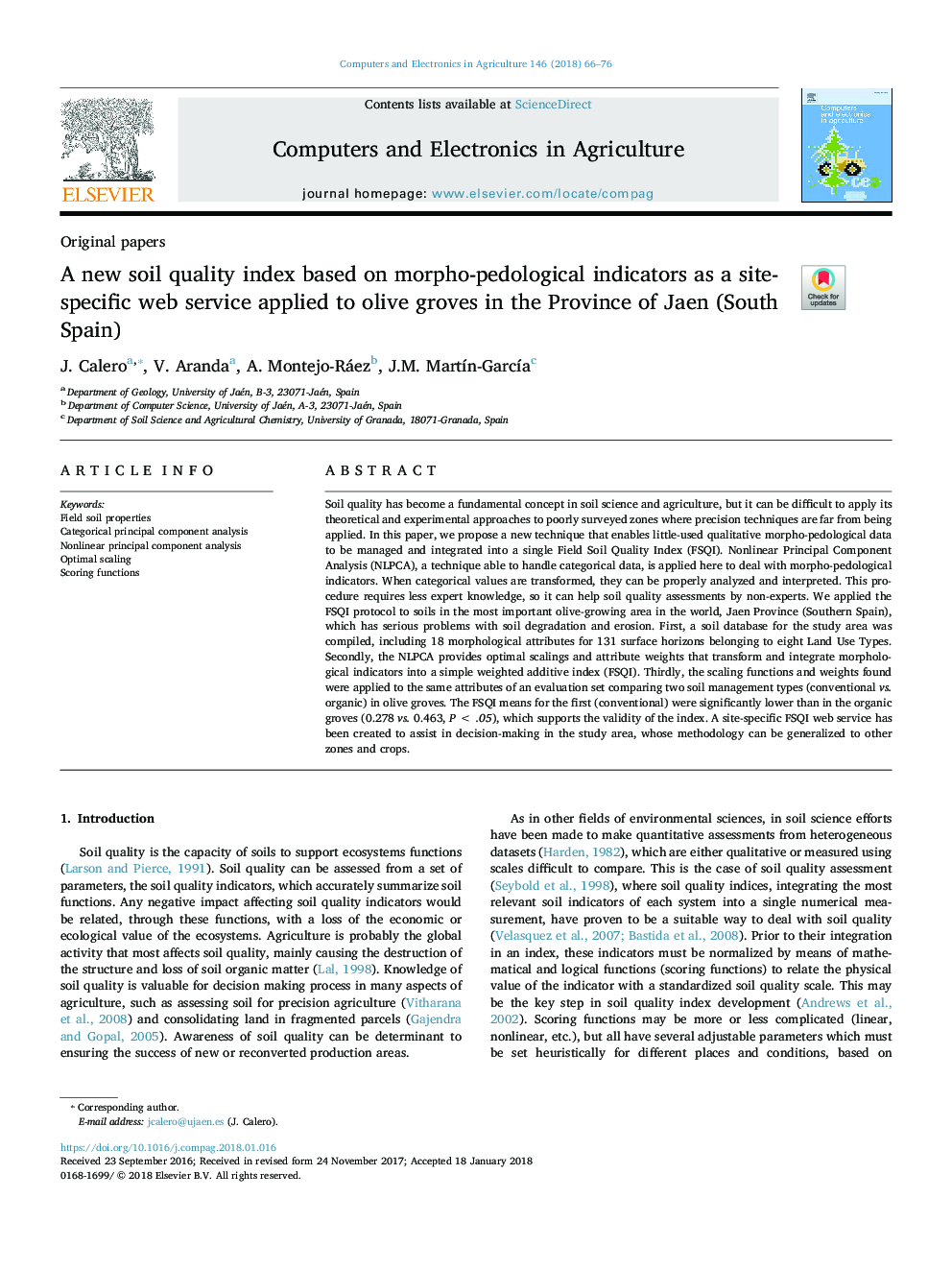| Article ID | Journal | Published Year | Pages | File Type |
|---|---|---|---|---|
| 6539677 | Computers and Electronics in Agriculture | 2018 | 11 Pages |
Abstract
Soil quality has become a fundamental concept in soil science and agriculture, but it can be difficult to apply its theoretical and experimental approaches to poorly surveyed zones where precision techniques are far from being applied. In this paper, we propose a new technique that enables little-used qualitative morpho-pedological data to be managed and integrated into a single Field Soil Quality Index (FSQI). Nonlinear Principal Component Analysis (NLPCA), a technique able to handle categorical data, is applied here to deal with morpho-pedological indicators. When categorical values are transformed, they can be properly analyzed and interpreted. This procedure requires less expert knowledge, so it can help soil quality assessments by non-experts. We applied the FSQI protocol to soils in the most important olive-growing area in the world, Jaen Province (Southern Spain), which has serious problems with soil degradation and erosion. First, a soil database for the study area was compiled, including 18 morphological attributes for 131 surface horizons belonging to eight Land Use Types. Secondly, the NLPCA provides optimal scalings and attribute weights that transform and integrate morphological indicators into a simple weighted additive index (FSQI). Thirdly, the scaling functions and weights found were applied to the same attributes of an evaluation set comparing two soil management types (conventional vs. organic) in olive groves. The FSQI means for the first (conventional) were significantly lower than in the organic groves (0.278 vs. 0.463, Pâ¯<â¯.05), which supports the validity of the index. A site-specific FSQI web service has been created to assist in decision-making in the study area, whose methodology can be generalized to other zones and crops.
Related Topics
Physical Sciences and Engineering
Computer Science
Computer Science Applications
Authors
J. Calero, V. Aranda, A. Montejo-Ráez, J.M. MartÃn-GarcÃa,
